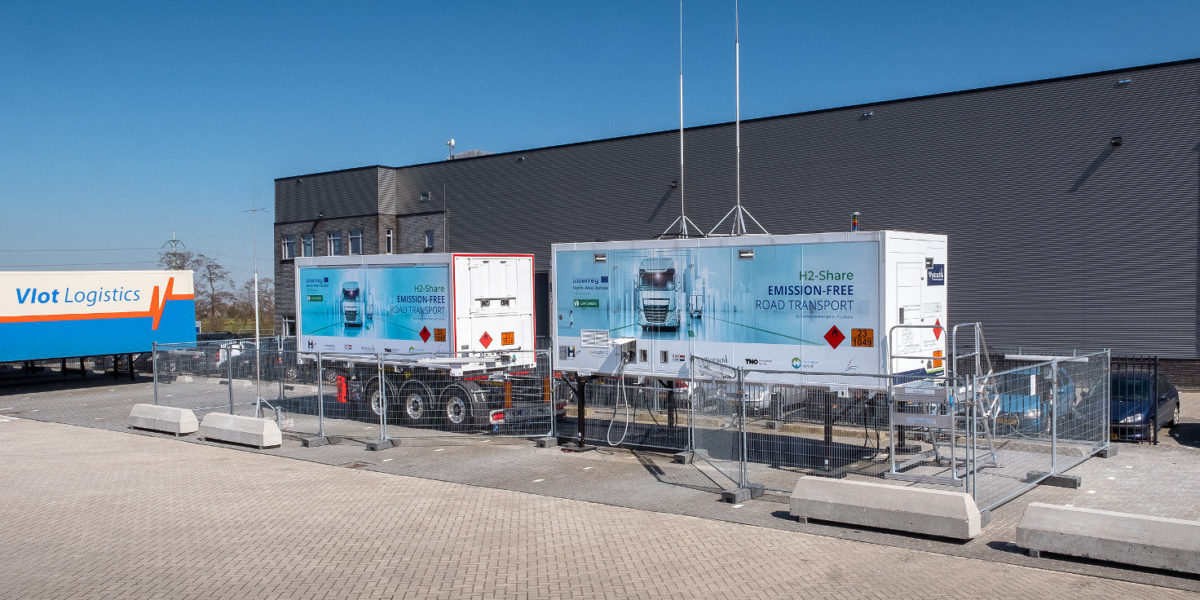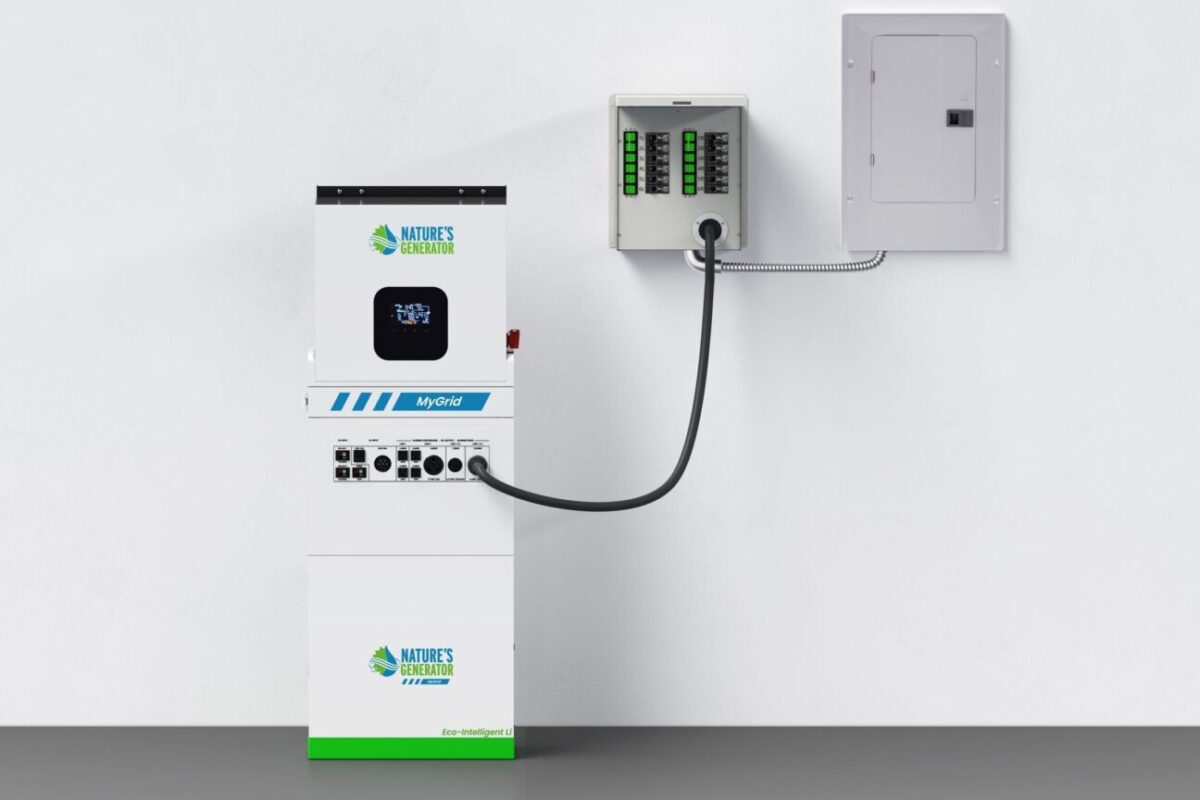From pv magazine Germany
German compressed-gas cylinder bundle, natural gas storage and transport pallets manufacturer Wystrach has launched its WyRefueler mobile hydrogen refueling station.
The WyRefueler has two components: a tank and a gas station container, a company spokeswoman told pv magazine. They are built as swap bodies and can be transported independently. The 350-bar hydrogen refueling system is for heavy-duty vehicles.
“The system is set up or dismantled within a day and only requires a 63A connection,” said Wolfgang Wolter, managing director of technology and sales for Wystrach.
The basic variant consists of a 20-foot tank container, 313kg of useful hydrogen volume, 88kg of buffer storage and a refuelable amount of 180kg of hydrogen per day. The WyRefueler is also equipped with an intelligent control system.
The gas station container can remain standing but the tank container has to be refilled with hydrogen or replaced when empty. The system is suitable for all types of hydrogen fuel, the Wystrach spokeswoman added.
The WyRefueler is “designed to be flexible” and can be configured in various ways, depending on customer requirements. For that reason, Wystrach was unable to give pv magazine a flat price for the mobile refueling station. “The system can be modified according to customer requirements, for example with a larger tank container volume, a stronger compressor or additional cooling,” added Wolter.
Wystrach offers a comprehensive service and consulting package and training for independent operation of the systems, added the spokeswoman. The station is monitored remotely around the clock.
The company said the WyRefueler has been successfully trialed in the Netherlands, with Rotterdam-based transport company Breytner having tested it for several weeks.
This content is protected by copyright and may not be reused. If you want to cooperate with us and would like to reuse some of our content, please contact: editors@pv-magazine.com.




Flooding the roads with battery cars is not thought out. Car batteries, no matter how good they might get, will still need to be charged. This means they will need to draw power through wires using our anemic electric grid. To make this possible, we will either need to redo our grid, or to supplement it throughout using power generators. The power generators can run on fuel oil or natural gas. Or they can run on hydrogen. If they run on fuel oil or natural gas, the benefits of having battery cars is defeated. If the power generators run on hydrogen, they will need to be refueled — which means we must put a hydrogen infrastructure in place to do so. But if we are going to have a hydrogen infrastructure to refuel hydrogen generators to charge battery cars, why not use the same infrastructure to refuel hydrogen cars and trucks to use the hydrogen directly?